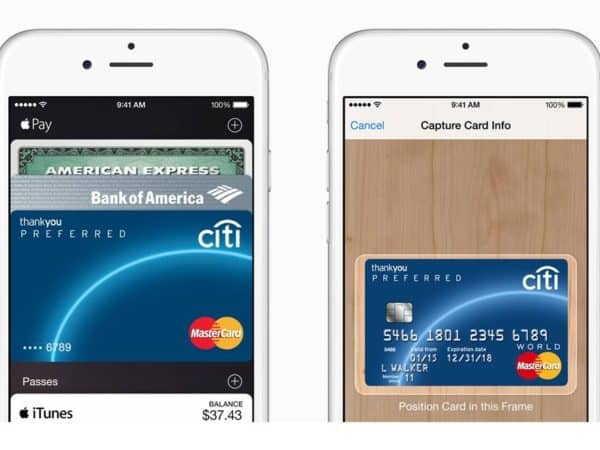Will Apple Pay be secure enough for Canada?


Rumours abound this week that Apple Pay will begin an international expansion in Canada later this year. The California tech giant is said to be in talks with six Canadian banks that could instantly give the mobile payments service, which launched in the United States last November, access to 90% of Canadian bank accounts.
But the banks, including RBC, TD and BMO have concerns. They are said to be be chuffed at transaction fees that will be higher than they are in the U.S. And they are concerned about security.
The latter interest reflects a Canadian reality. Turns out we are really, really concerned about the security of our financial information up here. According to a recent report from Symantec, called the “Norton Mobile Apps Report”, 77% of Canadians say financial data is their biggest mobile security concern, compared to just 71% of Americans.
Down south, there are already many concerns about the security of Apple Pay. Just after the service was launched, Los Angeles Times reporter Michael Hiltzik expressed doubt at the company’s claims that it would have no security issues.
“We’ll see: Credit account information will flow between the customer and Apple at some point, somehow,” said Hiltzik. “Apple’s systems haven’t been anything like secure in the past, so the company’s promise that this one will be rock-solid shouldn’t be taken as gospel.”
Hiltzik says while it is true that no exchange of credit card information exists between the consumer and retailer, criminals are already exploiting the Apple Pay system by then. Crooks have begun loading stolen credit card info onto iPhones. “That’s where the system breaks down,” says the reporter, as he says Apple simply throws up its hands and shunts off the verification of cards off to the banks.
Apple Pay fraud has now graduated from an itch to a raging infection.
“During setup, Apple Pay requires banks to verify each and every card and the bank then determines and approves whether a card can be added to Apple Pay. Banks are always reviewing and improving their approval process, which varies by bank,” said Apple in a statement addressing the matter, which has since magnified.
“We told you so,” needled Hiltzik.
One expert, Cherian Abraham, writes that Apple Pay fraud may have reached six per cent of all transactions at certain banks. That’s sixty times the average rate of fraud for credit cards. Aite Group’s Julie Conroy says she has heard that the number for some banks is as high as eight per cent.
Gartner analyst Avivah Litan says the stand off between Apple and the banks is a difficult problem to solve but actually presents an opportunity for the company.
“The vendors in the mobile user authentication space have consistently answered that they are leaving account provisioning policies to the banks or other consumer service providers provisioning the apps,” she said. “Well maybe it’s time for them to reconsider and start helping their client banks and service providers by supporting identity proofing solutions built into their apps. Whoever does this well is surely going to win lots of customer support… and revenue.”
Whether Apple Pay will be adopted en masse by Canadians, and indeed the world, likely comes down to timing. A high profile security issue within the first few months of its launch could turn skittish Canucks away. But six months or a year will give Apple time to work out the kinks in the real world, and that six per cent number is likely to come way, way, down.
But Abraham, who describes some of the moves Apple made leading up to the launch of Apple Pay “unconscionable”, thinks things could get worse.
Apple Pay fraud, he said, “….has now graduated from an itch to a raging infection.”
Below: Jimmy Kimmel on how to use Apple Pay…
Nick Waddell
Founder of Cantech Letter
Cantech Letter founder and editor Nick Waddell has lived in five Canadian provinces and is proud of his country's often overlooked contributions to the world of science and technology. Waddell takes a regular shift on the Canadian media circuit, making appearances on CTV, CBC and BNN, and contributing to publications such as Canadian Business and Business Insider.
